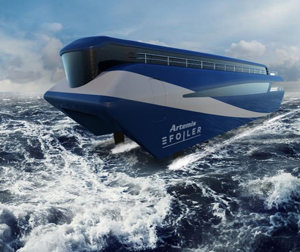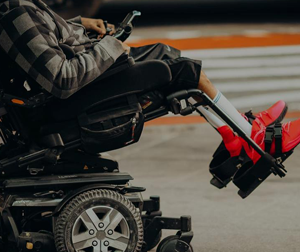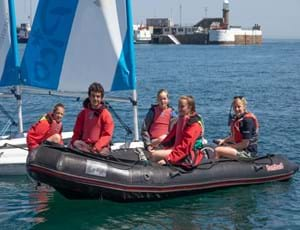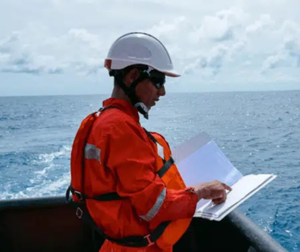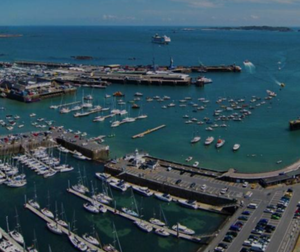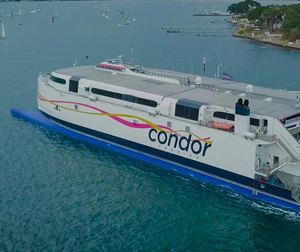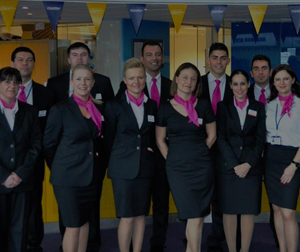
Ferries
Ferry & Hotel

- Ferries
- Ferry & Hotel
- Day Trips
- Travel Guides
- Onboard
- Help & Info
Ferries
Ferry & Hotel

The Condor Ferries Story
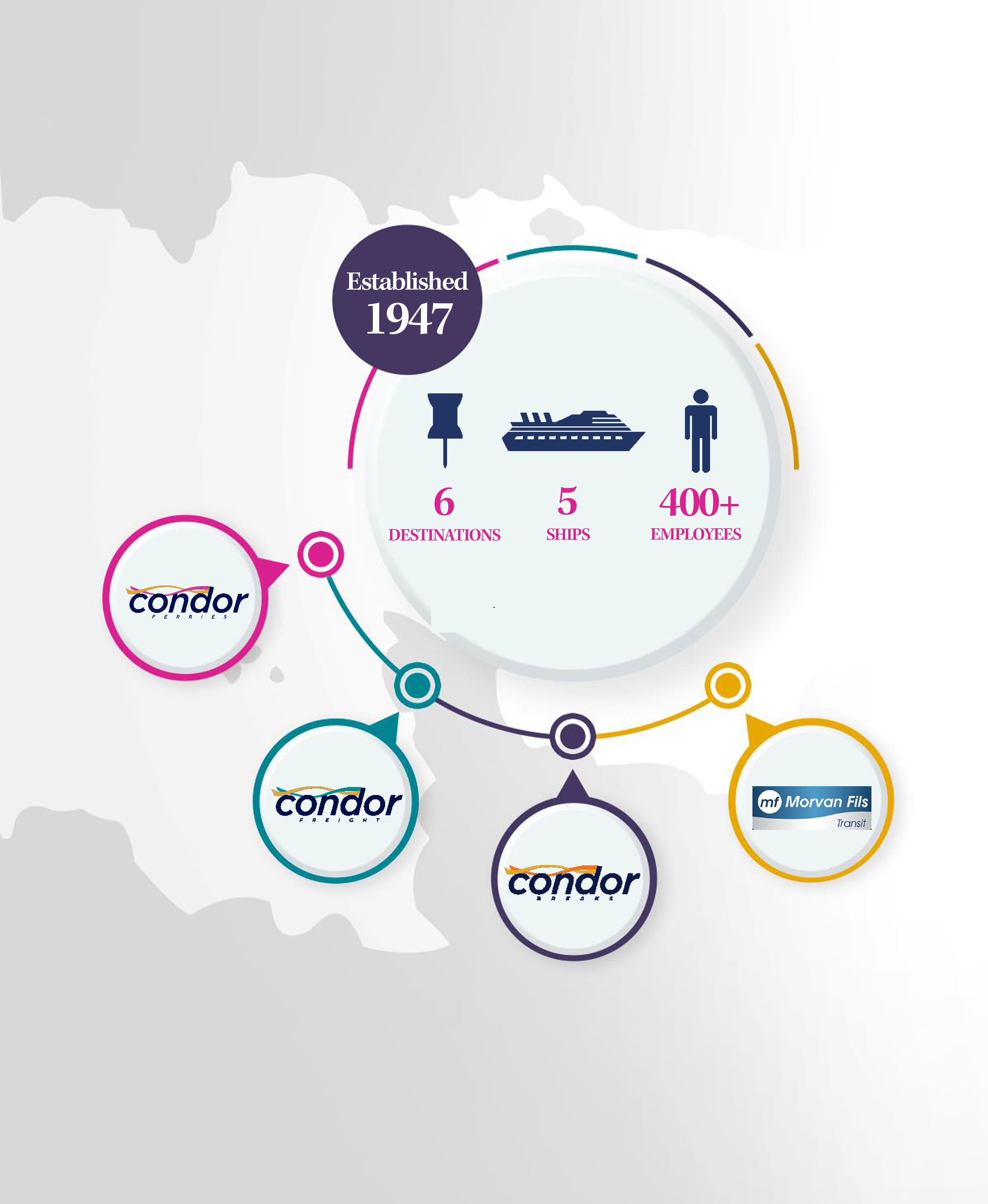 |
Commodore, founded in 1947 and later rebranded as Condor Ferries in 1964, initially provided passenger service between France and the Channel Islands. In 1987, we launched the first service connecting the Channel Islands with the UK. Since then, Condor has operated a year-round service linking the UK through Poole and Portsmouth to the Channel Islands through Guernsey and Jersey, with destinations in St Malo and Cherbourg, France. Today, Condor Ferries carries almost one million passengers and 200,000 passenger vehicles annually. Our fleet consists of two high-speed ferries, Condor Liberation and Condor Voyager. Additionally, we operate the conventional car, passenger, and freight vessel, Commodore Clipper, which offers a six-day-a-week, year-round service. Another vessel, Commodore Goodwill, exclusively handles freight transportation. Condor Islander will be in service by the end of 2023. The fleet plays a crucial role in transporting 100,000 freight vehicles to the Channel Islands each year and exporting large quantities of local produce. To read more about the history of Condor Ferries, please visit our about us page. |
Our ESG Vision
To enhance the wellbeing and prosperity of the communities we serve, manage our environmental impact and adopt innovative and collaborative approaches and technologies. Our goal is to be climate neutral by 2050.
We conscientiously recognize the environmental impact of our transportation operations and remain committed to actively mitigating these effects through various means. Moreover, we deeply value the vital role that charities and community organizations play within the communities we serve, and we are enthusiastic about contributing to their endeavours to achieve their objectives.
Our core mission revolves around fostering the well-being and prosperity of the communities we serve. In pursuit of this goal, we are dedicated to managing our environmental impact responsibly and proactively adopting innovative and collaborative approaches and technologies. As part of our long-term vision, we aspire to achieve climate neutrality by the year 2050.
Social Value
Deliver and enhance social value and foster socio-economic growth for our communities, customers, and employees.
Natural Environment
Manage our impact, consume responsibly and protect the natural environment we operate in.
Climate Resilience
Understand our exposure to climate change
risks and commit to addressing those risks.
Our goal is to be carbon neutral by 2050.
We will reduce our Scope 1, 2, and 3 GHG
emission by at least 50% by 2050.
As a first step, we will focus on reducing our
Scope 1 emissions - targeting GHG emissions from our fleet with a reduction in Carbon Intensity of 40% by 2030.
To focus on these strategic pillars, we will focus on four key goals for each of them.
Community Support
- Support the communities we serve and our staff through outreach programmes, providing opportunities for jobs and skills development.
- Enhance our corporate governance and training policies by promoting equality and diversity and anti-discrimination.
- Respond to local communities through continual engagement and adapting our offering.
- Enhance inclusive employment and recruitment practices to support the wellbeing of our people and promote gender balance.
To read more about how we focus on local communities, read through our Condor Community Fund page.
Environmental Initiatives
- Engage with waste contractors and track and report on waste quantities by waste type and treatment route.
- Continue to conduct and report COSHH assessment. Set target for zero oil or fuel/other harmful substances spills.
- Identify all water discharge and consumption sources across activities and track consumption.
- Embed prioritization of waste hierarchy into practices and set up recycling requirements.
Climate Responsibility
- Conduct a baseline assessment of our carbon footprint and monitor performance to inform future improvements.
- Develop a climate roadmap including risk assessments and measures/processes in line with TCFD recommendations.
- Engage with the States of Jersey and Guernsey on their future Port and Harbour development plans and decarbonization pathways.
- Continually promote and implement technological and operational innovation to support carbon and other ESG objectives.
|
|||||||||||||||||
Our Awards
We are honoured and proud to be recipients of this award for our work and dedication to ESG in the travel business.
IJGlobal ESG Technology Award
infrastructure category
✓ Awarded to organisations that demonstrate a strong commitment to ESG in business practices and performance on sustainable and ethical issues.
✓ For more information about this award, please read our IJGlobal ESG Technology Award page.
Our Stakeholders
As part of the development of our ESG Strategy and contributing to our social value assessment, we have mapped our key stakeholders across different groups. As a lifeline contributor to the Channel Islands and provider of key services to the local communities that use and depend on our operations, we recognize multiple stakeholders' importance and consider their interests when formulating ESG objectives, to foster the delivery of sustainable, long-term value.
Clients
- Freight clients
- Customers (Tourism & Leisure)
- Customers (Residents and family)
Authorities
- Flag State Authority (Bahamas)
- Class
- Port authorities
- Local government in each port
- LEPs (local enterprise partnerships)
Workforce
- HQ employees
- Supplier employees
- Ship employees
- Port employees
- Employees within the supply chain
- New/potential employees including apprentices and graduates
Supply Chain
- Direct suppliers
- Supplier of materials for daily services
- Service providers
- Food/beverage services on ships/ports
- Retail services on ships and at ports
- Freight suppliers
- Import/Export businesses
- Local supply chain
- Local distribution companies, local storage facilities
Local Communities
- Local businesses
- Local business networks
- Local Chamber of Commerce
- Local authority business information
- Local residents
- Resident associations
- Local community groups/organizations
- Local tourism organizations
Wider Stakeholders
- Training partners
- Universities/ Higher education institutions
- Local schools
- Employability organizations
- Condor Ferries
- New Jetty Offices
- White Rock
- St Peter Port
- Guernsey
- GY1 2LL
- +44 3456 091 024

